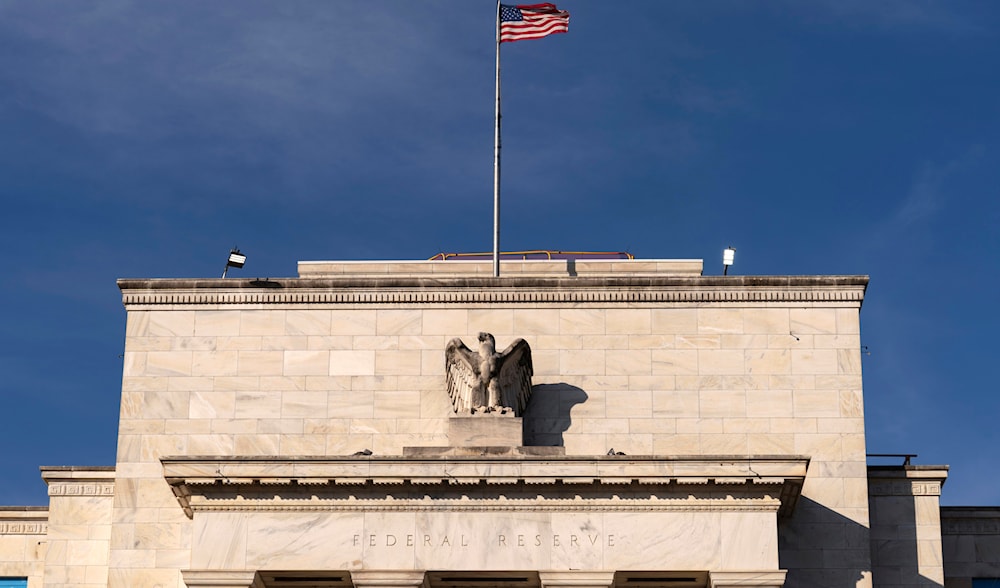FT: How government debt is challenging central bank independence
Record government debt levels are forcing central banks worldwide into fiscal dominance, where political pressure to cut rates undermines traditional monetary policy independence.
-

The headquarters of the United States Federal Reserve in Washington on November 18, 2024. (AP photo/Jose Luis Magana)
A fundamental shift is taking place in the global economy that could reshape how monetary policy operates for years to come. According to a recent analysis in the Financial Times by Senior Markets Correspondent Ian Smith, major economies are entering what economists call a "new era of fiscal dominance," a situation where mounting government debt pressures are forcing central banks to prioritize reducing borrowing costs over controlling inflation.
Fiscal dominance occurs when government debt levels become so large that they effectively constrain what central banks can do with interest rates. Rather than focusing solely on their traditional mandate of maintaining price stability, central banks find themselves under pressure to keep borrowing costs low to help governments manage their debt burdens.
As Smith reports in the Financial Times, this represents a reversal of the traditional relationship where independent central banks could focus on fighting inflation while governments maintained fiscal discipline. Now, with record debt levels across developed nations, the tables have turned.
Trump vs the federal reserve
The most prominent example Smith identifies is the United States, where US President Donald Trump has openly demanded that the Federal Reserve slash interest rates to reduce the government's debt-servicing costs. Trump has called Fed Chair Jerome Powell a "numbskull" and "major loser," demanding he cuts interest rates "NOW" and claiming this could save "hundreds of billions of dollars" in debt service payments.
The pressure reached unprecedented levels, whereby during an unusual visit to the Federal Reserve building in July, Trump publicly sparred with Powell over renovation costs, claiming they had reached $3.1 billion while Powell visibly disagreed. More recently, Trump threatened to allow a "major lawsuit" against Powell to proceed over the building renovations, escalating his pressure campaign.
Trump has also targeted individual Federal Reserve governors. On Wednesday, Trump called on Federal Reserve Governor Lisa Cook to resign after one of his allies alleged she had "falsified bank documents and property records to acquire more favorable loan terms."
"Cook must resign, now!!!" Trump declared on Truth Social, following allegations from Bill Pulte, head of the Federal Housing Financing Agency, who called for a Justice Department investigation.
This direct political interference represents what economists describe as fiscal dominance in action. As Smith notes in his Financial Times analysis, the current situation creates "enormous political incentives for governments around the world to put pressure on central banks to lower rates."
A global phenomenon
Besides, Smith reveals that fiscal dominance pressures are appearing worldwide. The combination of record government debt and rising borrowing costs is creating similar dynamics across major economies.
The OECD projects that sovereign borrowing among high-income countries will reach a record $17 trillion in 2025, up from $16 trillion in 2024 and $14 trillion in 2023, per the Financial Times article. This mounting debt creates an increasingly urgent need for governments to keep borrowing costs manageable.
Even countries traditionally known for fiscal discipline are feeling the pressure. The author gives the example of Germany, long known for balanced budgets, has seen 30-year borrowing costs rise to more than 3 percent, their highest since 2011, largely due to the government's plans to increase borrowing for infrastructure and defense spending.
Similarly in the UK, long-term borrowing costs are particularly high, with 30-year gilt yields at 5.6%, close to their highest level in more than 25 years.
How markets are responding
Smith's reporting shows that financial markets are already taking into account these political pressures. He notes an unusual market response following recent inflation data demonstrated by a fall in short-term Treasury yields, due to expectations of rate cuts, while long-term yields actually rose, suggesting investors are worried about the Federal Reserve's independence.
The market is also responding to what Smith describes as a "fiscal capture trade," where futures markets are pricing in five quarter-point rate cuts by the end of next year, even though major Wall Street banks have actually improved their economic forecasts recently.
The central bank dilemma
The analysis piece reveals the complex position this puts central banks in. When debt levels are high, raising rates to combat inflation becomes counterproductive because it increases government borrowing costs, potentially worsening fiscal sustainability and paradoxically contributing to inflation through higher debt service costs passed through to the economy.
As Harvard professor Kenneth Rogoff tells Smith, the combination of government debt and increased costs is "creating enormous political incentives for governments around the world to put pressure on central banks to lower rates."
Looking ahead
The stakes extend beyond economics since maintaining central bank independence may be crucial for preserving confidence in major reserve currencies like the dollar. If investors lose faith in central banks' ability to control inflation independent of political pressure, they may demand higher interest rates on government debt, precisely the opposite of what financially-stressed governments want.
While some countries have successfully implemented institutional frameworks to prevent fiscal dominance, like Brazil, Chile, and Mexico that embedded fiscal rules within inflation-targeting regimes, the structural nature of current fiscal challenges in major economies suggests this phenomenon will continue influencing monetary policy for the foreseeable future.

 5 Min Read
5 Min Read









